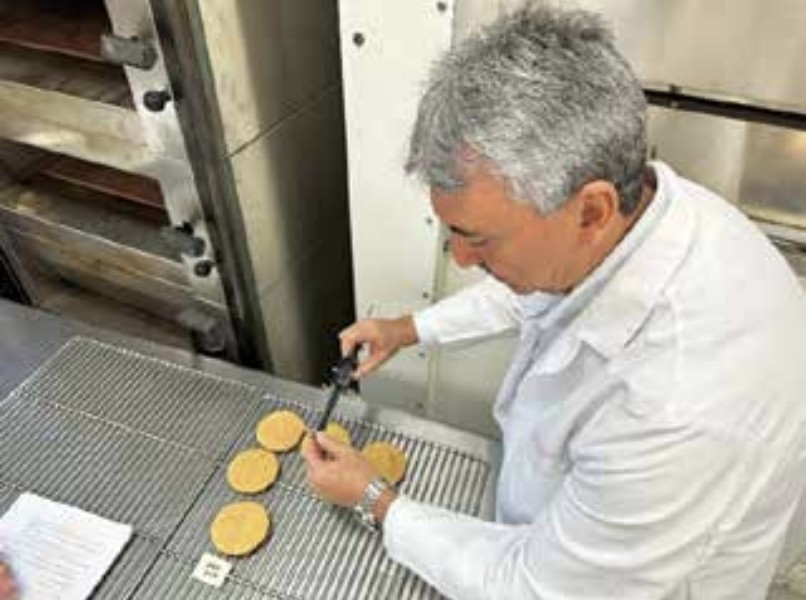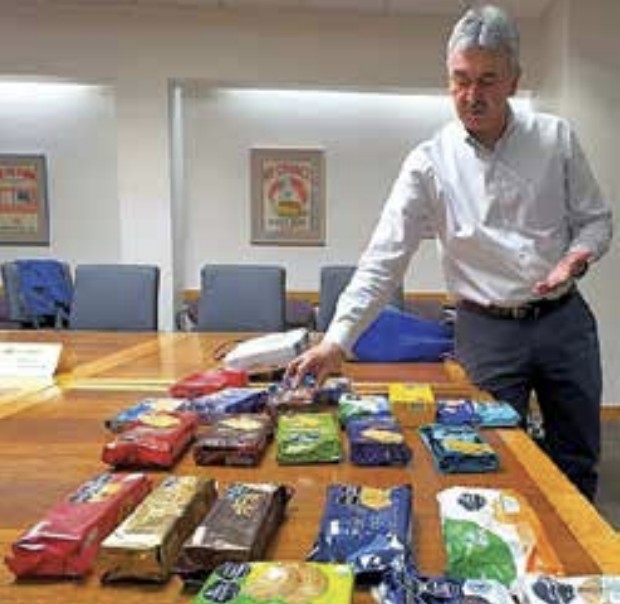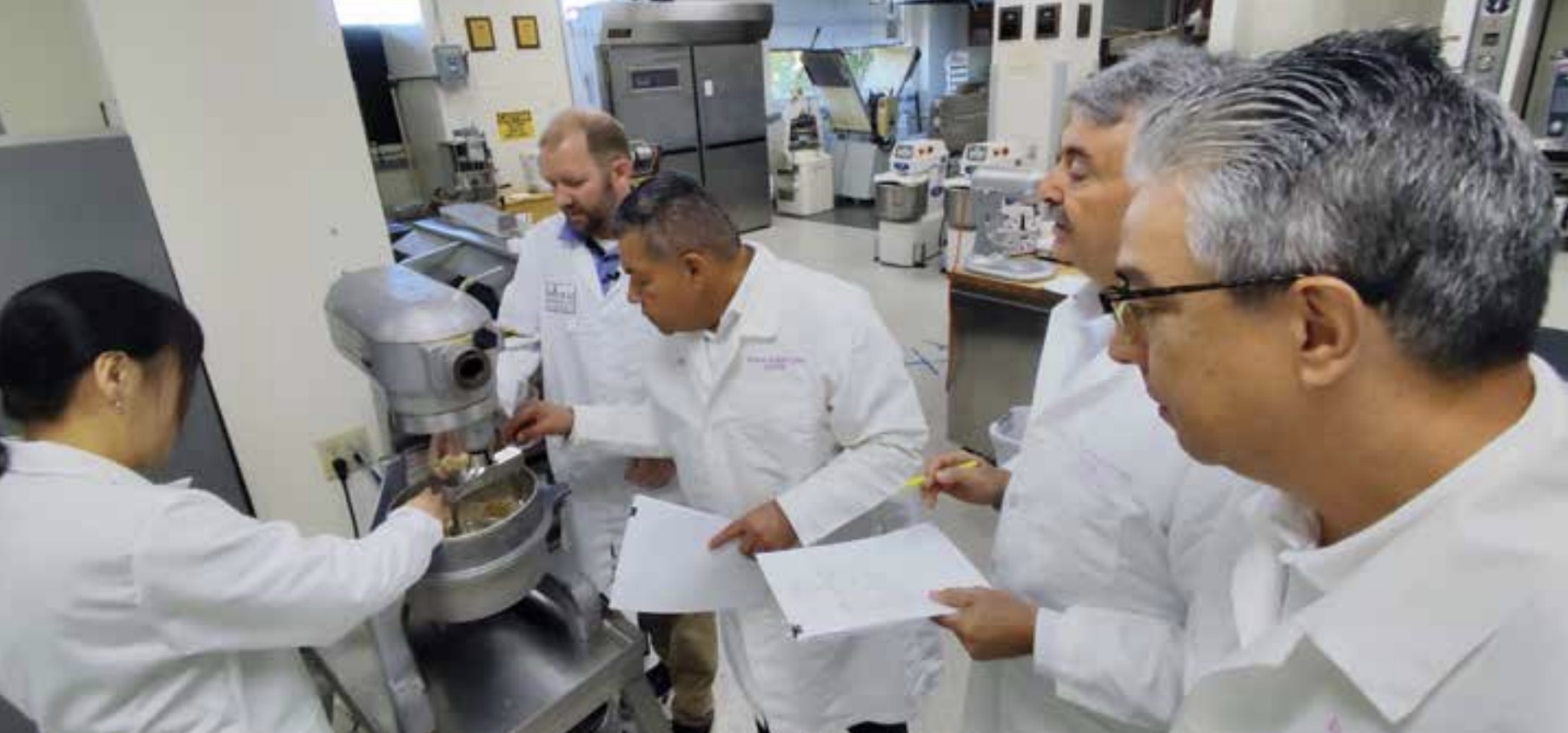USW activities position U.S. soft wheat as essential ingredients for Colombian baker
U.S. Wheat Associates (USW) often goes the extra mile, the extra several thousand miles, in fact, to demonstrate the value and versatility of soft white wheat (SW) grown in Washington and the Pacific Northwest (PNW). A perfect example involves a major South American snack maker that has increased its use of SW, thanks to separate USW activities over the past year.
The overall effort took some “outside the box” thinking. Better yet, it took some “outside the cracker box” thinking.
Colombia-based snack company, Colombina del Cauca, had been using soft red winter wheat (SRW) and a limited amount of SW for its popular cookies, crackers, and snack brands. USW wanted to help the company maximize SRW flour performance, while also showing how more high-quality SW from the PNW could improve the products they bake.

With funding from the U.S. Department of Agriculture’s Regional Agricultural Promotion Program (RAPP), in late 2024, USW arranged for William Morales, operations manager for Colombina, to attend a three-week Cookie and Cracker Technology Course at the UFM Baking School in Bangkok, Thailand. USW’s move was unique, as it was the first time a customer from outside of Asia participated in the course.

In addition to instruction on ingredients (including SW flour), formulas/recipes, and processing, the course covered the many uses of solvent retention capacity (SRC), a soft wheat flour evaluation method that shows direct benefits of SW flour and SRW flour performance compared to competitor wheat.
Following the course, Colombina invested more than $15,000 in an SRC system that is now being used at their milling facilities, confirming the importance of USW’s work to help customers around the world recognize the superior end-use quality of U.S. wheat. USW regularly provides international millers and bakers with a service that helps them learn and adapt SRC analysis to better predict the true performance characteristics of flour for a wide range of end-products, including cookies, crackers, and cakes.
Specifically, SRC examines the glutenin, gliadin, and pentosan characteristics of the flour, along with the flour’s level of starch damage. These values describe the flour’s ability to absorb water during the mixing process and its ability to release that water during the baking process. SRC testing directly benefits the use of U.S. SW classes, as it is the only analysis that reveals the difference between flours with and without additives. For bakers, this testing ensures they are using the best possible flour to craft their end-products.
The second USW activity to boost SW is the perfect follow up. A few months after the UFM course in Bangkok, USW invited Morales to the PNW to participate in a Soft Wheat Workshop at the Wheat Marketing Center (WMC) in May of this year in Portland, Ore. USW’s goal was to demonstrate how Colombina could incorporate more SW into their production line.

Shortly after that workshop, the company imported 500 metric tons (MT), or about 18,400 bushels of SW.
“Based on their overall experience, the company has established an agreement with their trader to make regular purchases of SW as a complement to their annual purchases of SRW,” Miguel Galdos, USW regional director for South America, reported.
Last marketing year, combined SW and SRW sales to Colombia hit 403,000 MT (14.8 million bushels), benefitting farmers in Washington, Oregon, Ohio, Illinois, Maryland, and other states.
A challenging but growing market
Colombia has the second-largest population in South America, and their flour milling industry — separated into regional clusters by port locations on either the Atlantic or the Pacific coasts — is dependent on imported wheat. The market is highly competitive, with duty-free imports available from the U.S., Canada, Mercosur, and the European Union.
USW activities to increase imports of U.S. wheat in the country are multifaceted.
This summer, four bulk carriers loaded with cargoes of U.S. wheat landed on Colombia’s Pacific Coast, marking the first commercial sales from a successful monetization project that aims to make nonrevenue assets and services profitable, led by the Food for Progress program and supported by USW. Two of those vessels that originated in the PNW were “grocery boats,” a term the grain trade uses to describe a vessel that can carry multiple commodities. In this case, the ships unloaded U.S. SW to ports in Ecuador and U.S. HRW in Buenaventura, Colombia.
Five years ago, these types of combined cargoes were virtually unheard of in South America — another testament to USW’s strategic work to connect buyers with U.S. wheat traders and exporters to maximize their purchasing options.
“The commercial sales of U.S. wheat to Colombia, following a successful monetization project, are a clear demonstration of the effectiveness of the Food for Progress program and USW’s commitment to expanding market access for U.S. wheat farmers,” Galdos said, noting that USW is tracking additional commercial sales of U.S. wheat expected to land in Colombian ports this fall. “USW will continue to build on these wins by providing additional trade and technical assistance to further cement trust with Colombian millers and create additional opportunities for importing U.S. wheat.”
This article originally appeared in the October issue of Wheat Life Magazine.
Ralph Loos
Director of Communications, Multimedia, and Global Outreach, U.S. Wheat Associates
